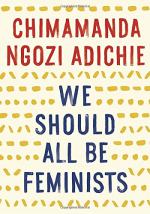|
This section contains 1,266 words (approx. 4 pages at 400 words per page) |

|
Childhood as Opportunity and Limitation
The essay, which opens with two back-to-back memories from the author’s childhood, when she was 14 and nine years old, demonstrates the ways in which childhood operates as a period of important socialization and worldview formation in a person’s life. The author shows the ways in which young boys and girls learn through this socialization how their society understands masculinity and femininity and how they should behave themselves accordingly. The author’s argument in relation to socialization is diffused throughout this text. The argument begins with the author’s premise that, “We are all social beings” (30). Thus, “socialization” involves the integration of the individual into a society—a process that involves both conditioning and compromise so that the individual can fit their expected role. These expectations and ideas of masculinity and femininity are “internalize[d]” (30), as the author describes at one point, so...
|
This section contains 1,266 words (approx. 4 pages at 400 words per page) |

|




